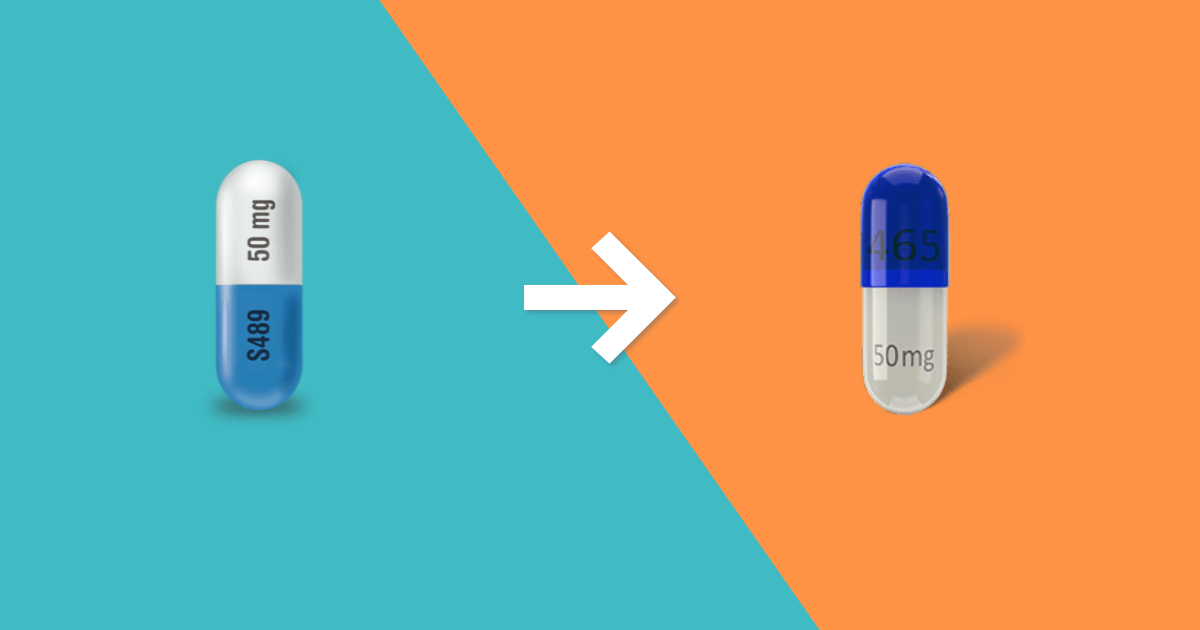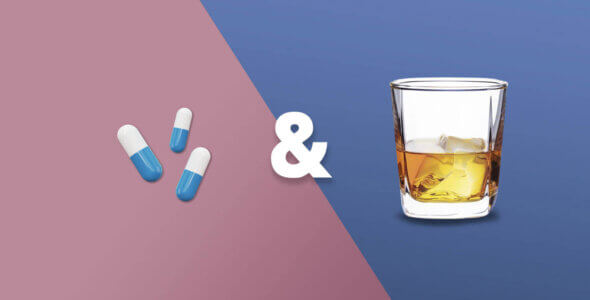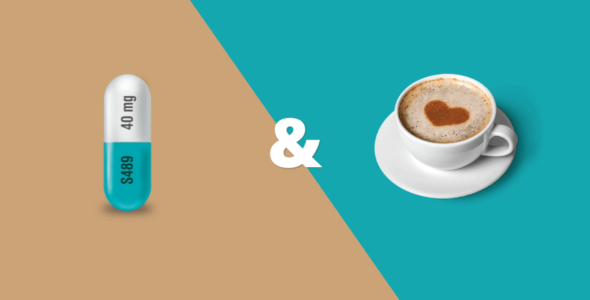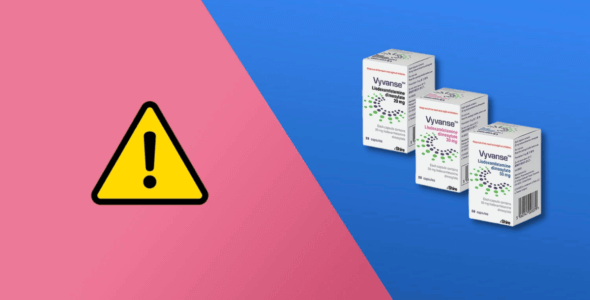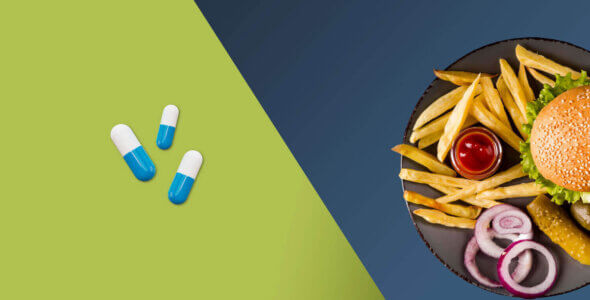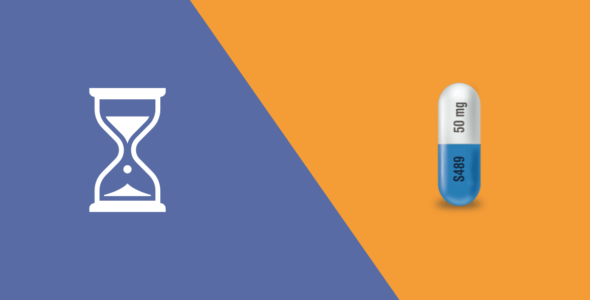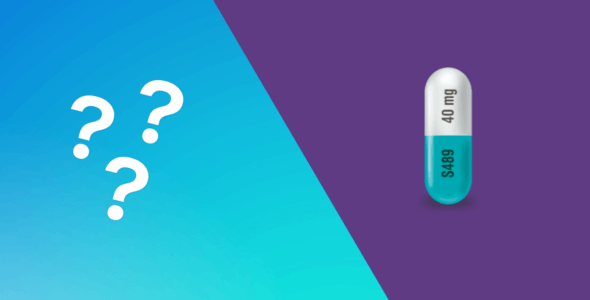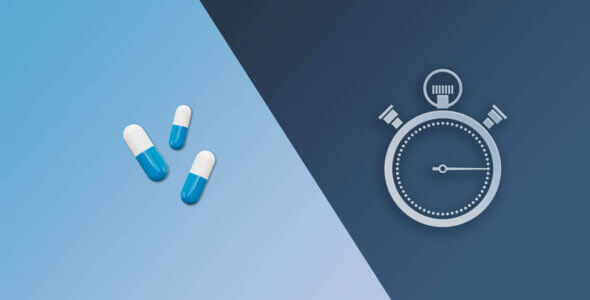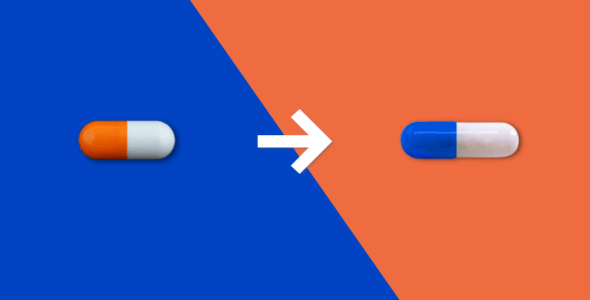Switching from Vyvanse to Mydayis
Table of contents
- What is ADHD?
- What is Vyvanse?
- What is Mydayis?
- How do Vyvanse and Mydayis work in the body?
- How long does it take for Vyvanse to work?
- Forms and dosages of Vyvanse
- How long does it take for Mydayis to work?
- Forms and dosages of Mydayis
- Vyvanse vs Mydayis
- When is it recommended to switch from Vyvanse to Mydayis?
- Adderall and Vyvanse side effects
- Mydayis and Vyvanse drug interactions
Vyvanse and Mydayis are both drugs for the treatment of attention deficit hyperactivity disorder (ADHD). They are both amphetamine products available as extended-release formulations making them long-acting drugs. Switching medication is often recommended by healthcare professionals when ADHD symptoms are not controlled or when there are unacceptable adverse effects. There are many ADHD medication treatment options to consider. How and when to switch medications should be done under your doctor’s medical advice and guidance. Learn more about what to expect when switching from Vyvanse to Mydayis.
What is ADHD?
ADHD is the abbreviation of Attention Deficit Hyperactivity Disorder characterized by inattention, hyperactivity, and impulsivity. It is a neurodevelopmental disorder that is typically diagnosed in childhood, commonly in males but underdiagnosed in females. According to the Centers for Disease Control and Prevention, there are an estimated 6.4 million children and adolescents diagnosed with ADHD in the United States.
Mental health professionals have identified three types of ADHD, based on the main symptoms involved:
- Inattentive type ADHD
- Hyperactive-impulsive ADHD
- Combination of inattentive and hyperactive-impulsive type ADHD
ADHD symptoms can vary from person to person, depending on the subtype of ADHD.
What is Vyvanse?
Vyvanse is an FDA (U.S. Food and Drug Administration) approved medication manufactured by Shire PLC. Vyvanse is the brand name of lisdexamfetamine dimesylate, a derivative of amphetamine. Vyvanse contains the prodrug lisdexamfetamine, which is metabolized into L- lysine, and dextroamphetamine once it is in the body.
Vyvanse is a prescription drug belonging to a class of drugs known as Central Nervous System stimulants. It is used to treat:
- ADHD in adults, adolescents, and children over the age of 6 years
- Moderate to severe binge eating disorder
Vyvanse is not recommended for weight loss and obesity. Vyvanse is a prescription stimulant medication but is also classed as a Schedule II controlled substance. As a controlled substance, doctors usually prescribe small doses.
Other drugs included in the class of central nervous system stimulants include Concerta (methylphenidate), Ritalin, and Focalin (dexmethylphenidate). Non-stimulant ADHD treatments such as Strattera are also available.
What is Mydayis?
Mydayis is a prescription medication given to adults and children aged 13 and over to treat attention deficit hyperactivity disorder (ADHD). It is the same drug as Adderall XR but with a slightly longer duration time.
Mydayis contains four active ingredients; dextroamphetamine sulfate, amphetamine sulfate, dextroamphetamine saccharate, and amphetamine aspartate monohydrate. These are mixed amphetamine salts that stimulate activity in your brain.
How do Vyvanse and Mydayis work in the body?
Vyvanse and Mydayis belong to a class of drugs known as amphetamines. By working on the central nervous system Vyvanse and Mydayis increase activity in areas of the brain that help you with your concentration and behavior. They work specifically on the chemicals dopamine and norepinephrine in the brain. These neurotransmitters, dopamine, in particular, are involved in feelings of pleasure, focus, and finding things interesting. Stimulant medications reduce the symptoms of ADHD making conditions such as inattention, poor decision making, and poor impulse control much less of a daily problem.
How long does it take for Vyvanse to work?
It will take about 1 to 3 hours for Vyvanse to work when taken on an empty stomach to reach its maximum level in your blood. If a Vyvanse chewable tablet is taken on an empty stomach it will take slightly longer to kick in. Vyvanse can provide a steady experience due to slower absorption with your dose lasting up to 14 hours.
It is important to remember these timings are rough estimates because several factors need to be taken into consideration such as drug tolerance, weight, height, and sleep patterns to name a few.
For Vyvanse to start working in your body, lisdexamfetamine must react with your blood and be converted into the active drug dextroamphetamine. Vyvanse is a prodrug, meaning it is converted from an inactive form into an active form in your body by chemicals or enzymes.
Forms and dosages of Vyvanse
The recommended starting dose of Vyvanse is 30 mg. Your doctor may periodically increase or decrease your dosage to help control ADHD symptoms and manage any side effects. You’ll work with your doctor to find an ADHD dose that’s best for you.
Vyvanse is available in chewable tablet form in the following doses: 10 mg, 20 mg, 30 mg, 40 mg, 50 mg & 60 mg.
Vyvanse is also available in capsule form in the following doses: 10 mg, 20 mg, 30 mg, 40 mg, 50 mg, 60 mg & 70 mg.
How long does it take for Mydayis to work?
It will take Mydayis around 2 hours to start working in your body and its effects can last up to 16 hours. You can experience increased energy and focus quicker, which may be useful if you need immediate relief from ADHD symptoms. Just like Vyvanse, these duration times are just approximate.
Forms and dosages of Mydayis
Mydayis is available in four extended-release capsule strengths: 12.5 mg, 25 mg, 37.5 mg, and 50 mg.
Mydayis is taken as a daily dose orally, with or without food.
Doctors will usually prescribe a lower dose when you first start taking a medication and gradually titrate it until they find the right therapeutic dose for you and your symptoms.
Vyvanse vs Mydayis
Vyvanse is a similar medication to Mydayis. Both are central nervous system stimulants derived from amphetamines, and both are used for the treatment of ADHD. Vyvanse is also used for the treatment of binge eating disorders (BED), but Mydayis isn’t.
Although the two medications are similar and work in a similar way, they contain different active ingredients. Mydayis contains four different kinds of amphetamine salts, whereas Vyvanse only contains lisdexamfetamine, which is converted to dextroamphetamine inside your body.
Both Vyvanse and Mydayis are effective treatments for ADHD, and they both cause similar side effects. Vyvanse only has an effect once it’s been converted into your body. It’s thought to have a lower risk of substance abuse than Mydayis because of its mode of action that requires enzymes in your body to convert it into its active form.
One important difference is that Vyvanse is a prodrug, meaning lisdexamfetamine is converted into dextroamphetamine once it is in the body. Vyvanse remains inactive until the body breaks it down in the bloodstream. This is not the case with Mydayis. Mydayis capsules have a triple-bead release action and contain three types of beads per capsule: 33% of the beads are immediate-release, 33% of the beads are delayed-release working at pH 5.5 and 33% of the beads are delayed-release working at pH 7.0. Mydayis releases its medication in three phases whereas Vyvanse releases its active ingredient steadily over the course of the day.
Get your medication for only $49 per month
Get StartedWhen is it recommended to switch from Vyvanse to Mydayis?
- When Vyvanse is not providing symptom control over the course of the day. Mydayis has a slightly longer duration of action and your doctor may want to switch you over
- When Vyvanse is causing undesirable adverse effects a switch to a different amphetamine may be recommended by your doctor
Stimulants are powerful medications that wear off rapidly. They’re also completely eliminated from your body by the end of their specified duration, so it’s possible to stop taking them one day and start another stimulant on another occasion. Your doctor will tell you how this transition should be made when changing from Vyvanse to Mydayis.
Are Mydayis and Vyvanse safe to use?
Mydayis and Vyvanse are both controlled substances that can be abused and become habit-forming. Both have the potential to be addictive. However, when used as prescribed to treat a medical condition, Vyvanse and Mydayis shouldn’t become habit-forming.
Amphetamines can be used as recreational drugs. This is where they aren’t used as prescribed or to treat an indicated medical condition. Recreational use, particularly heavy use of amphetamines, can lead to physical dependence (addiction). It can alter the way your body works. You can also become more tolerant of the drug, requiring higher doses to get the same desired effect.
Vyvanse has less potential to be used recreationally than other amphetamines, as it’s slower acting, and won’t be absorbed quicker if it’s crushed or ground up. If used as directed by a doctor to treat ADHD or BED, it shouldn’t become addictive. Research has also shown that long-term use of stimulants from childhood to treat conditions like ADHD reduces the chances of addiction. Your healthcare provider should assess your risk of Vyvanse or Mydayis addiction before prescribing and should monitor you while you take it.
Vyvanse and Mydayis are Schedule II drugs, which means there is a potential for abuse and dependency. Since Vyvanse needs to be converted in the body, it can’t be inhaled or injected as a way to become high, so it is less likely to be misused than Mydayis and other stimulant medications. Always store your medications safely and away from other people.
Adderall and Vyvanse side effects
The most common side effects of Mydayis and Vyvanse in children, adolescents, and/or adults with ADHD are:
- Anorexia
- Anxiety
- Dizziness, nausea
- Blurred vision
- Dry mouth
- Irritability
- Insomnia
- Upper abdominal pain, stomach pain, vomiting, loss of appetite, decreased weight, diarrhea, constipation
- Motor tics (repeated muscle movements)
- Increased heart rate
In rare instances, Mydayis and Vyvanse can cause more serious side effects. These can include:
- Serious cardiovascular reactions e.g. chest pain
- Sudden death has been reported with CNS stimulant treatment at recommended doses in pediatric patients with structural heart defects or other serious heart problems
- Sudden death, stroke, and heart attacks in adults
- High blood pressure and increase in heart rate
- Suppression of growth – monitor height and weight in pediatric patients
- Circulation problems, such as skin color changes, a cold feeling including Raynaud’s phenomenon
- Serotonin syndrome – an increased risk when co-administered with serotonergic agents (e.g., SSRIs, SNRIs, triptans), but also during overdosage situations
- New or worsening psychosis, bipolar disorder, or mental health issues
- Withdrawal symptoms if you suddenly stop using this medication – severe tiredness, sleep problems, mental/mood changes such as depression
- Severe allergic reactions e.g. hives, shortness of breath
Your doctor will assess the benefits of using Mydayis and Vyvanse against your risk of side effects. You are encouraged to report negative side effects or adverse reactions of Vyvanse and Mydayis to the FDA. Visit www.fda.gov/medwatch, or call 1-800-FDA-1088.
Mydayis and Vyvanse drug interactions
Mydayis and Vyvanse can interact with other medications, including prescription drugs. In some instances, this can change how it and other medications work. It can even increase the likelihood and severity of some side effects. Medications that are known or thought to interact with Mydayis and Vyvanse include:
- Monoamine oxidase inhibitors, MAOIs, (methylene blue, phenelzine, or selegiline)
- Tricyclic antidepressants (desipramine or protriptyline)
- Medications that affect your serotonin system (SSRIs or SNRI antidepressants, triptans, fentanyl, or St. John’s Wort)
Read the full prescribing information for Mydayis and Vyvanse and always speak with your healthcare provider for medical advice about your medicine so they can monitor and evaluate your condition. Always inform your healthcare provider of all your medical conditions, and any medications you are taking, including over-the-counter meds and supplements.
Vyvanse and Mydayis are two commonly prescribed ADHD meds. While both mediations work to relieve symptoms, it may take trial and error to determine which medication will work best for you.
Medically reviewed
A medical professional has reviewed this article.


Jamie Winn, PharmD
Jamie Winn, PharmD
Dr. Jamie Winn received his Doctor of Pharmacy in 2002 from the University of South Carolina College of Pharmacy, Columbia, SC. Jamie is a medical reviewer for NiceRx.

